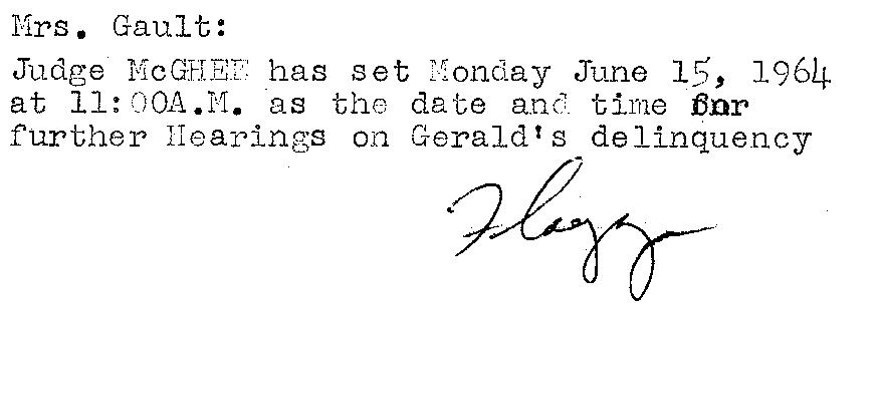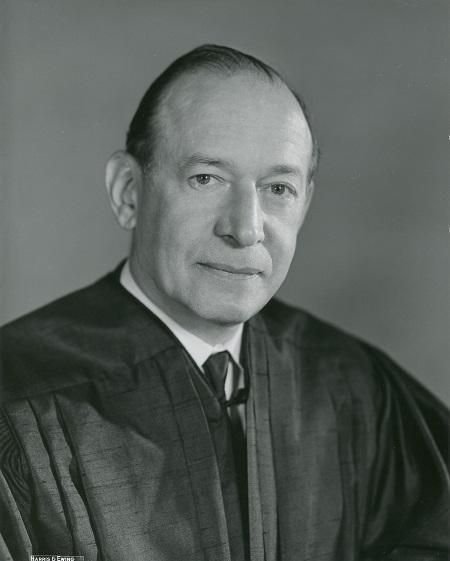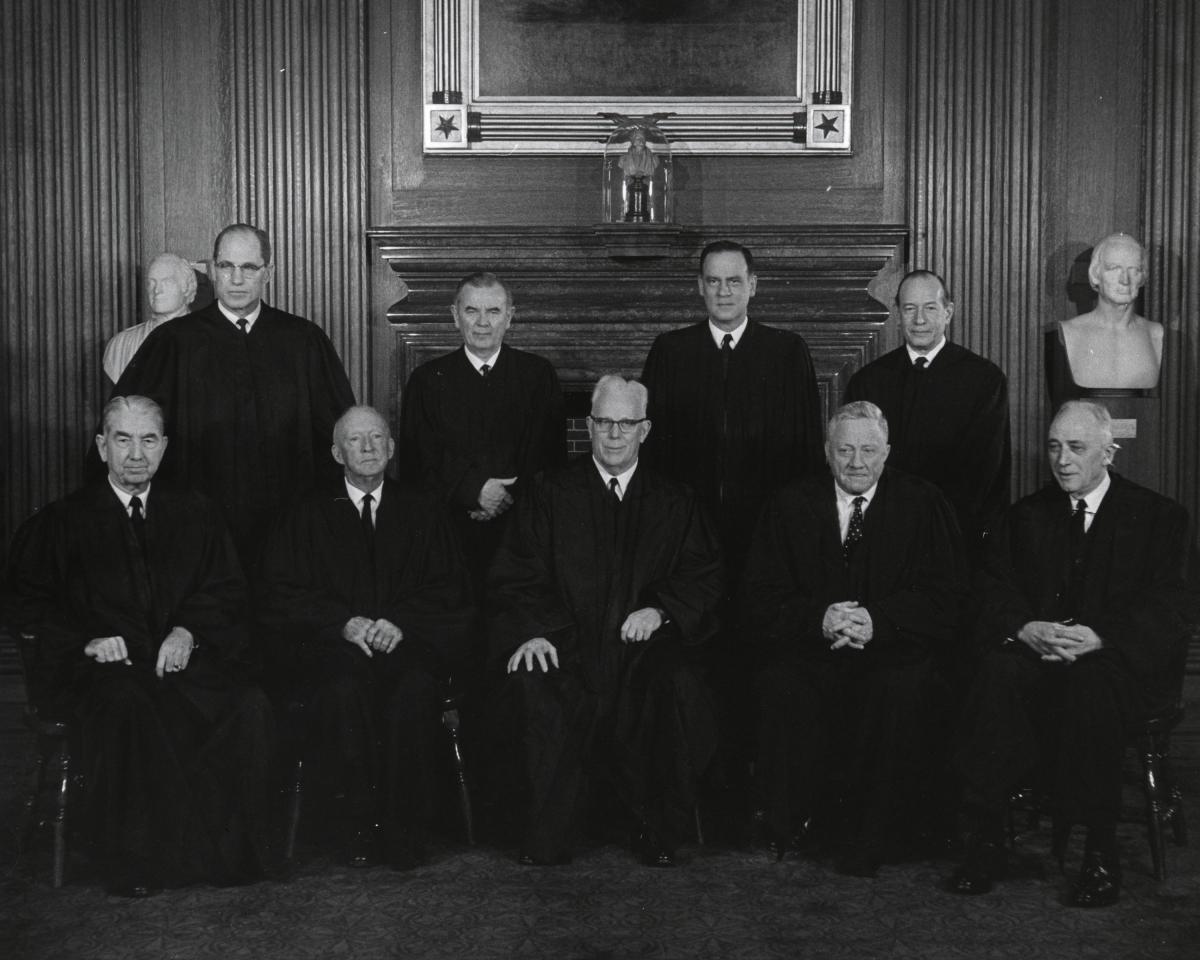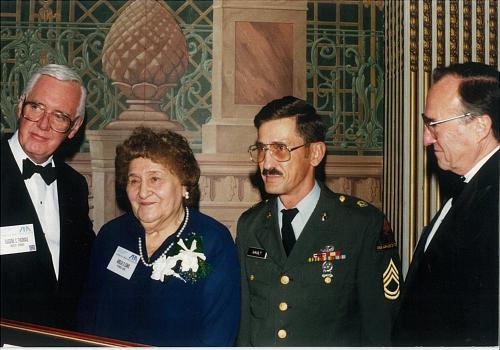In re Gault, 387 U.S. 1 (1967)
Gerald “Gerry” Gault, a 15-year-old boy, was arrested by the Sheriff of Gila County in Arizona for making obscene phone calls to a neighbor, Ms. Cook, on June 6, 1964. After Ms. Cook filed a complaint, Mr. Gault and his friend, Ronald Lewis, were taken to the Children’s Detention Home. Throughout the questioning, Jerry continued to assert that the phone call had been made by his friend using their telephone. Mr. Gault was on probation at the time of his arrest, having been in the company of another boy who had stolen a wallet from a woman’s purse.
At the time of his arrest, Mr. Gault’s parents were at work. When his mother arrived home, she sent a younger son looking for him, learning later from the family of Mr. Lewis that the two boys had been arrested. Three hearings in total were held without witnesses being sworn in and with neither the petition nor probation report being provided to the youth or his parents. The victim never appeared to identify the boys despite Mrs. Gault’s request that she be there to identify which of the two young men had done the “dirty talking over the phone.” At the end of the third hearing, Mr. Gault was sentenced to six years at the State Industrial School until he reached the age of 21 years. The maximum sentence for an adult for the same crime was two months in jail and a $50 fine.
Arizona law at the time permitted no appeals in juvenile cases, so Mr. Gault’s parents filed a writ of habeas corpus with the Arizona Supreme Court to obtain their son’s release. The Arizona Supreme Court concluded that juvenile court proceedings required due process but that the Arizona Juvenile Code and the Gault proceeding in particular did not violate due process.
The case was appealed to the Supreme Court of the United States and was decided on May 15, 1967, with Justice Fortas writing the opinion for the court.
This Court has not heretofore decided the precise question. In Kent v. United States, 383 U.S. 541 (1966), we considered the requirements for a valid waiver of the “exclusive” jurisdiction of the Juvenile Court of the District of Columbia so that a juvenile could be tried in the adult criminal court of the District. Although our decision turned upon the language of the statute, we emphasized the necessity that “the basic requirements of due process and fairness” be satisfied in such proceedings.9 Haley v. Ohio, 332 U.S. 596 (1948), involved the admissibility, in a state criminal court of general jurisdiction, of a confession by a 15-year-old boy. The Court held that the Fourteenth Amendment applied to [387 U.S. 1, 13] prohibit the use of the coerced confession. MR. JUSTICE DOUGLAS said, “Neither man nor child can be allowed to stand condemned by methods which flout constitutional requirements of due process of law.”10 To the same effect is Gallegos v. Colorado, 370 U.S. 49 (1962). Accordingly, while these cases relate only to restricted aspects of the subject, they unmistakably indicate that, whatever may be their precise impact, neither the Fourteenth Amendment nor the Bill of Rights is for adults alone.
The court ruled that Mr. Gault’s commitment to the State Industrial School was a violation of the 6th Amendment since he had had been denied the right to an attorney, had not been formally notified of the charges against him, had not been informed of his right against self-incrimination, and had not been provided an opportunity to confront his accusers. In his opinion, Fortas observed that “being a boy does not justify a kangaroo court.” He further opined that “due process of law is the primary and indispensable foundation of individual freedom. It is the basic and essential term in the social compact which defines the rights of the individual and delimits the powers which the state may exercise.”
For a National Public Radio piece on the Gault case, click here (May 19, 2007; Debbie Elliott, host: All Things Considered from NPR News. Gault Case Changed Juvenile Law).
More Precedents
For more information, please contact Janet I. Warren, DSW, Professor of Psychiatry and Neurobehavioral Sciences, Institute of Psychiatry and Public Policy, University of Virginia, [email protected], or 434-924–8305.




